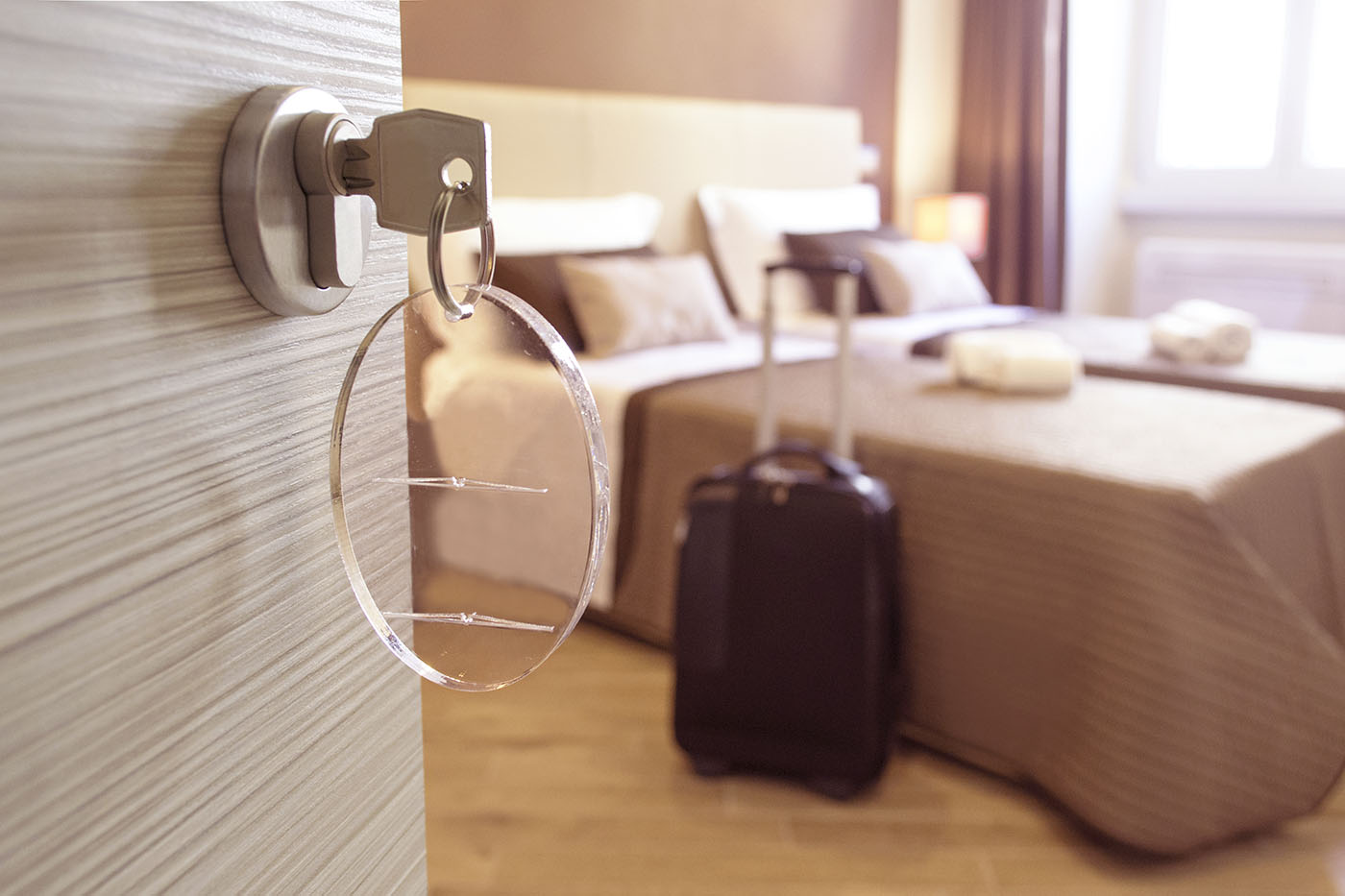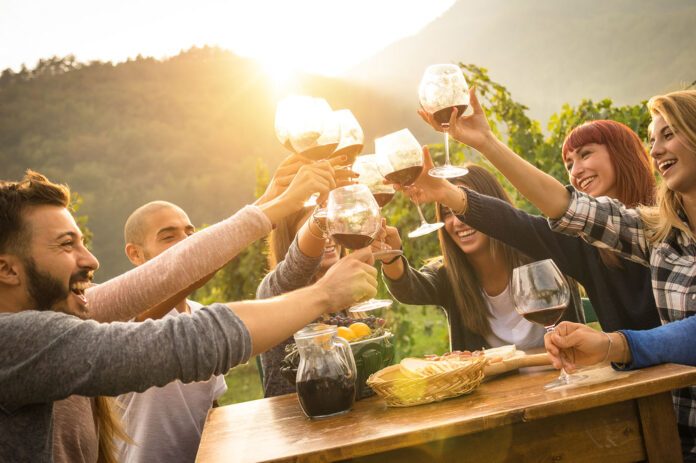Just as wine turned Napa Valley into a world-renowned hotspot, cannabis has the potential to transform communities across the country into thriving tourist destinations. Dispensary owners and growers are ready to serve a canna-curious public, but for the most part the hospitality industry is not. Many businesses remain hesitant, resistant, or simply unsure about how to connect their services with a product that is still illegal in some states.
With legal cannabis sales in the United States projected to hit $37 billion by 2024, it’s time for the hospitality industry to lean into cannabis as a legitimate draw for diverse guests and visitors. Together, these complementary industries can de-stigmatize the plant and profit from a new wave of business opportunities.
Millions of tourists flock to Napa Valley every year—3.85 million in 2018 alone—to take in awe-inspiring landscapes, enjoy sunny weather, and sample world-class local wines. Wine initially may have put Napa on the map, but drinking is far from the only activity in the region. Tourists also visit to shop and enjoy outdoor recreation and fine dining. The region’s offerings cater to a wide range of visitors: families with young children, romantic couples, groups of friends, and business travelers.
Napa’s hospitality industry has rallied around its local wineries and built a diverse community of businesses adjacent to, but not reliant upon, wine. Well-known chefs opened Michelin-starred restaurants to pair their culinary offerings with local vintners’ wares. Five-star boutique hotels popped up throughout the valley, offering unique spa and lodging options. Wedding and event venues capitalized on the influx of people and built profitable businesses around shared customer interests.
By working with and supporting local vineyards, Napa’s businesses helped create a robust, alcohol-optional tourist destination people of all ages can enjoy. Now, businesses in states where cannabis is legal have the opportunity to follow a similar trajectory.

What the hospitality industry can do
Because only fourteen states and the District of Columbia have legalized recreational use, the majority of Americans must travel to obtain non-medical cannabis products. Now is the time for hotels, spas, and event venues in rec-legal states to position themselves for cannabis tourism. Working together, the two industries have the power to help ease the public into the future.
This means moving beyond the “bud and breakfast” cliché that overlooks the broader hospitality experience. We must work to replace the stereotypical “stoner” and “partier” assumptions with a more realistic, nuanced image of marijuana consumers. Changing the paradigm means integrating cannabis into existing hospitality business models, aesthetics, and clientele.
Cannabis tourists aren’t looking simply to get high; they’re looking for high-quality travel experiences. They blanket the spectrum from seniors seeking pain relief and relaxation to young couples reconnecting, stressed-out professionals enjoying spa pampering, and girlfriends in search of a weekend getaway in the country. In other words, marijuana users are all of us: chief executive officers, professionals, parents, grandparents, and high-end hotel guests. Meeting the needs of cannabis-positive guests is just an extension of what we’ve always done in the hospitality industry—taking care of people. By normalizing cannabis within our industry, we de-stigmatize the plant and give our guests a truly exceptional hospitality experience.

What cannabis businesses can do
In Napa, tourists can opt to join a vineyard tour, listen to live music, or enjoy a meal with friends without a sip of wine required. How can cannabis businesses create a similar environment, and help their local hospitality industry create warm, welcoming experiences that won’t alienate those who don’t partake in cannabis?
Some suggestions:
•Reach out to hotel concierges so they have your company’s information when guests seek recommendations for dispensaries or farm or factory tours. If your dispensary offers delivery, make sure hotels know.
•Lobby local visitors bureaus to include cannabis in their marketing campaigns.
•Ask the local police chief or sheriff to provide their interpretation of safe access. When tourists buy cannabis locally, where can they go to consume?
•Offer tours of your farm, factory, or dispensary to local hospitality professionals, particularly bartenders and servers in popular restaurants. Inform them about your offerings so they can inform their customers.
•Hotels need both cannabis-focused and cannabis-friendly excursions. Offer to design a package for local hotels.
•Contact hotels and event venues about hosting a staff mixer or public event for your cannabis brand.
There is no shortage of ways cannabis can help elevate hospitality services. The only difference between a guest ordering a bottle of champagne from room service and ordering edibles to be delivered to their room by a local dispensary is perception—and the cannabis and hospitality industries can help change that.
Cannabis pairs beautifully with architecture and design, top-quality food, personal care, and luxury experiences. Let’s offer that kind of integrated experience to our guests and customers: high-quality, on-brand hospitality that will surprise and delight. By showcasing the best our regions have to offer, the cannabis and hospitality industries can grow together.














[…] country’s embrace of legal marijuana has also paved the way for entrepreneurs to establish cannabis-focused businesses that cater to tourists. Whether it’s guided tours of local dispensaries or immersive experiences in cannabis farms, […]
[…] high-minded tourists have turned to private-owner booking services like Airbnb and Bud and Breakfast to find […]
[…] are not visited only out of necessity. Rather, they have become a destination in themselves, serving out-of-town guests as well as connecting with the larger community. By offering adjacencies for their customers such […]